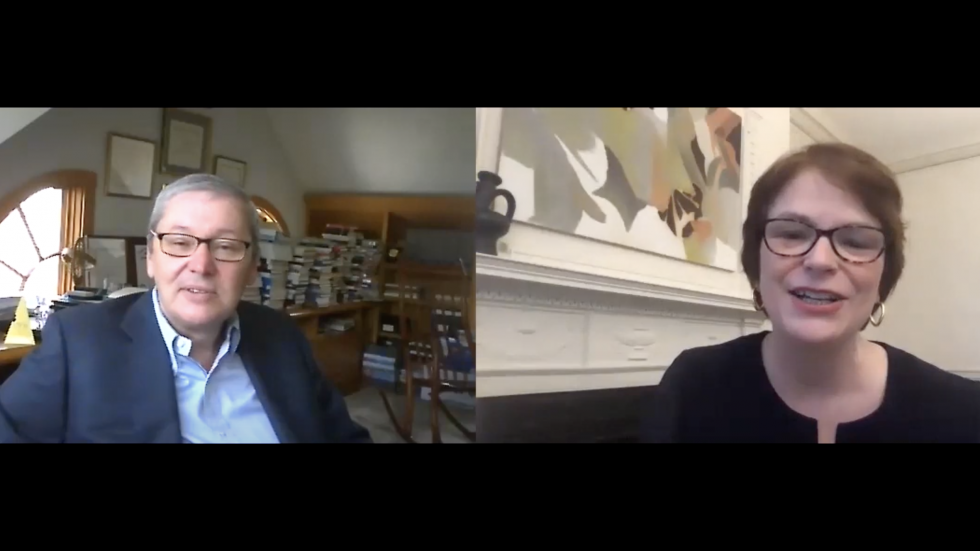PROVIDENCE, R.I. [Brown University] — As COVID-19 continues its spread, forcing record numbers of workers to file for unemployment insurance in the wake of layoffs and furloughs, many Americans are nervously looking back to prior economic challenges, including the 2008 financial crisis.
And while any economic uncertainty can cause anxiety, some economists say there is reason to believe that lessons learned from 2008 will prevent a coming recession from having as dire an impact on the financial health of Americans.
In the second segment of a new virtual discussion series titled “Community Conversations,” hosted by Brown University President Christina H. Paxson, economist Greg Mankiw joined Paxson — who is herself an economist and economics scholar — to discuss the best path toward economic recovery.
Mankiw, a professor at Harvard University, has a long history as an economics educator with his bestselling textbook, “Principles of Economics,” a household name to business students nationwide. He is also deeply involved in economic policy, having served as the chairman of the Council of Economic Advisors, as well as an advisor to the Congressional Budget Office and the Federal Reserve Banks of Boston and New York.
In a fast-paced and far-ranging conversation, Mankiw stressed that the COVID-19 pandemic is really the proximate — and perhaps only — cause of the current economic recession, a fact that sets it apart from 2008.
“The Fed learned the lesson [from 2008] relatively quickly,” Mankiw said. “[2008] was a problem that started within the financial system, then spread over to the rest of the economy. Now, there was no problem in the financial system until the pandemic, and then people worried that the pandemic is going to affect the financial system. In some ways, it’s a little bit easier now.”
Unlike 2008’s crisis, which was buoyed by a stimulus package, Mankiw argues that recent legislation passed — including the CARES Act, which includes cash payments to most Americans, extra unemployment payments, forgivable loans and more — is less a stimulus and more disaster relief.
“We’ll have to worry about the government debt at some point, but now is not the time ... right now, increasing the government debt is the right thing to do,” he said.
Mankiw and Paxson discussed best-case scenarios for the recession, namely that many of the layoffs and furloughs are temporary. This time, Mankiw said, “there’s a common enemy. We’re all in this together. In that sense, it brings the community together where the last crisis was more divisive.”
The full conversation, which covers topics from universal basic income to the joy of attending academic conferences via Zoom, is available on YouTube.
